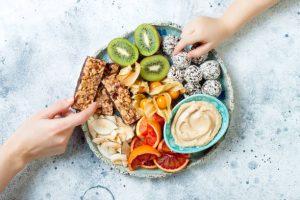
Steroids amplify muscle growth and performance, but without proper nutrition, their benefits can fall short. Athletes using anabolic steroids need a diet that fuels intense training, supports recovery, and maintains overall health. A well-planned nutrition strategy can maximize gains while minimizing potential side effects. This article explores dietary considerations for steroid users, offering practical guidance to optimize performance and well-being.
Why Nutrition Matters for Steroid Users
Steroids increase protein synthesis and nitrogen retention, creating an anabolic environment where muscles grow faster. However, this heightened state demands more nutrients to sustain energy, repair tissues, and support bodily functions. Without adequate nutrition, users risk fatigue, poor recovery, and even health complications. For those sourcing quality products, such as steroids Canada, pairing supplementation with a tailored diet is critical to achieving desired outcomes safely.
Protein: The Foundation of Muscle Growth
Protein is the cornerstone of any muscle-building diet, especially for steroid users. Steroids accelerate muscle protein synthesis, so you need more protein to meet this demand. Aim for 1.6 to 2.2 grams of protein per kilogram of body weight daily. Lean meats like chicken, turkey, and beef provide high-quality protein. Fish, eggs, and dairy are also excellent choices. Plant-based options, such as tofu, lentils, and quinoa, work well for those avoiding animal products. Timing matters too—spread protein intake across meals to ensure a steady supply for muscle repair. For example, a post-workout shake with 30-40 grams of protein can kickstart recovery.
Carbohydrates: Fuel for Performance
Carbohydrates are your body’s primary energy source, especially during intense workouts. Steroids increase glycogen storage, so carbs are essential to replenish these stores and sustain performance. Focus on complex carbs like oats, brown rice, sweet potatoes, and whole-grain pasta. These release energy slowly, keeping you fueled longer. Aim for 4-7 grams of carbs per kilogram of body weight, depending on training intensity. For a 200-pound athlete, that’s roughly 360-630 grams daily. Timing carb intake around workouts—such as a pre-workout meal with rice and vegetables—can boost energy and recovery.
Fats: Supporting Hormones and Health
Healthy fats are vital for hormone production, including testosterone, which steroids already amplify. Include sources like avocados, nuts, seeds, olive oil, and fatty fish such as salmon. Aim for fats to make up 20-30% of your daily calories. Avoid trans fats and limit saturated fats to keep your heart healthy, as steroids can strain cardiovascular health. For example, swap butter for olive oil when cooking, or add a handful of almonds to your snack routine. Balancing fats ensures energy and supports long-term health.
Micronutrients: The Unsung Heroes
Vitamins and minerals play a key role in recovery and immunity. Steroids can increase oxidative stress, so antioxidants like vitamins C and E are crucial. Citrus fruits, berries, and leafy greens provide vitamin C, while nuts and seeds offer vitamin E. Zinc and magnesium support testosterone production and muscle function—think oysters, pumpkin seeds, or a ZMA supplement before bed. Hydration is equally important. Steroids can cause water retention, so drink plenty of water to support kidney function and overall health. Aim for at least 3-4 liters daily, more if training heavily.
Meal Timing and Frequency
Eating consistently fuels the anabolic effects of steroids. Aim for 5-6 smaller meals daily to keep energy levels stable and provide a constant nutrient supply. Pre- and post-workout meals are critical. A pre-workout meal might include chicken, rice, and broccoli, eaten 2-3 hours before training. Post-workout, a shake with protein and fast-digesting carbs like fruit juice speeds recovery. Don’t skip breakfast—it sets the tone for the day. A sample breakfast could be eggs, oatmeal, and a banana, providing protein, carbs, and micronutrients.
Managing Side Effects Through Diet
Steroids can stress the liver, heart, and kidneys, but diet can help. Fiber from vegetables, fruits, and whole grains supports digestion and cholesterol levels. Omega-3 fatty acids from fish or flaxseed oil reduce inflammation and protect the heart. Limit sodium to manage water retention and blood pressure—avoid processed foods and season lightly. Regular blood work and medical checkups are wise, but a nutrient-dense diet acts as a first line of defense.
Supplements to Consider
While whole foods should dominate, supplements can fill gaps. Whey protein is convenient for hitting protein goals. Creatine monohydrate boosts strength and recovery—5 grams daily is enough. Branched-chain amino acids (BCAAs) may aid recovery, though they’re less critical if protein intake is high. Multivitamins ensure micronutrient needs are met. Avoid overloading on supplements; focus on quality and necessity.
A Sample Day of Eating
Curious what a day’s diet might look like? Breakfast: three eggs, two slices of whole-grain toast, and an avocado. Mid-morning snack: Greek yogurt with berries and a handful of almonds. Lunch: grilled chicken, quinoa, and steamed broccoli. Pre-workout: turkey wrap with spinach and sweet potato fries. Post-workout: whey protein shake with a banana. Dinner: salmon, brown rice, and a mixed green salad. This plan balances protein, carbs, and fats while prioritizing nutrient-dense foods.
READ ALSO: Build Your Muscles Naturally Through The Right Diet And Exercise
Long-Term Health and Sustainability
Steroid use demands a long-term view. A diet rich in whole foods not only enhances performance but also protects against side effects. Rotate protein sources to keep meals interesting—try new recipes like grilled shrimp skewers or lentil curry. Stay consistent but flexible; life happens, and occasional indulgences won’t derail progress. Listen to your body. If energy dips or recovery slows, reassess your diet. Consulting a nutritionist can provide personalized tweaks.
Optimizing nutrition while using steroids isn’t just about bigger muscles—it’s about smarter training and better health. By prioritizing protein, carbs, fats, and micronutrients, you create a foundation for success. Stay hydrated, time your meals, and choose whole foods over processed junk. With discipline and balance, your diet can amplify the benefits of steroids while keeping you strong and healthy for the long haul.
 Building muscle doesn’t need to rely on synthetic enhancers or fad supplements. Many people achieve impressive results by focusing on the right foods and supplements. Key nutrients and balanced meals lay the foundation for sustainable gains, while smart, safe supplementation helps reach muscle growth goals faster and safely.
Building muscle doesn’t need to rely on synthetic enhancers or fad supplements. Many people achieve impressive results by focusing on the right foods and supplements. Key nutrients and balanced meals lay the foundation for sustainable gains, while smart, safe supplementation helps reach muscle growth goals faster and safely.